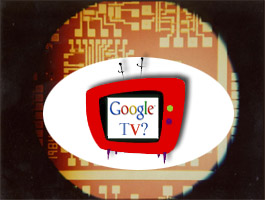The last few months have seen a new communications trend emerge. About five years ago, viable wireless digital technologies appeared in the marketplace -- most notably WiFi. Along with its continued improvement and proliferation, a new, potentially profitable and influential opportunity has been identified by the corporate world. There is now a slow but growing "gold rush" to establish wireless territory, but not to simply deliver web pages to roaming laptops and handheld devices, but to compete with, and replace traditional broadcast networks. With the ever improving state of WiFi/wireless technologies it is now possible to broadcast video and sound in a manner that is competitive with traditional television. The technology will continue to improve and will eventually surpass both -- "over the air" as well as cable broadcasting.
From Grassroots to Municipal
The development of wireless networks began several years ago. Various grassroots organizations -- most notably in the San Francisco area and New York City formed. Members of these groups began making their personal Internet connections available to neighbors and the general public by connecting wireless access points (AP) to their home networks and placing the AP units on window sills and building exteriors. Slowly but surely those signals saturated various areas with Internet signals, which anyone with a proper wireless card could access. These networks were mostly established by hobbyists and IT professionals as coop efforts just to demonstrate that they could be done. There was, and still is, an undercurrent of the communal Internet spirit, which encourages sharing and contributing to the larger project -- not unlike the whole concept of "open source."
Municipalities eventually became interested in wireless connectivity as a means of enhancing business districts and to spur economic development. One of the first municipal projects of this nature were/are the "Hot Zone" projects in Long Beach, California, which utilize a greeting portal that allows local advertising -- other similar projects throughout the country soon followed and the model has been repeated and emulated in many other cities. It was my involvement with the Long Beach Hot Zone projects that allowed me to really see some of the widespread practical applications that were possible through wireless technology.
Digital Divide and E-Government
The phrase, Digital Divide, has decreased in usage over the last couple of years, but the "Digital Divide" is still an issue in many economically challenged communities. Numerous households still cannot afford Internet connectivity. Through WiFi and other wireless technologies it is possible to saturate large areas with signal and in conjunction with charitable and non-profit agencies, it would be possible to acquire a computer for just about any household. The federal government, together with state and local governments have long been promoting the concept of E-Government, but the lack of computers and connectivity in the economically challenged sections of the country have stifled E-Government. Currently municipal governments are trying to expand their wireless networks, but because these networks will also be able to handle telephone (VOIP) service, they are starting to raise concerns among private ISPs and telephone companies. Some states are actually passing legislation to reduce the areas where large scale wireless networks may be deployed...
The New Broadcast Networks
What makes wireless technology so attractive? In the USA and many countries, wireless networks such as those utilizing 802.11 and other approved frequencies do not require permits or FCC licenses. It may have been assumed that the networks utilizing this technology would remain small, thus no regulation would be necessary. However with the improvement of wireless technology it is now possible to leap-frog wireless networks wirelessly (by using repeaters) throughout larger and larger areas. That is what is making the corporate entities become very interested... Theoretically it is possible to blanket entire cities with controlled wireless access for relatively little cost!
So who are these new networks? Google TV?
One company has stepped forward in the last few months and has reached an agreement with a very large and high-profile city to create such a network. A few weeks ago Google and the City of San Francisco struck an agreement to allow Google to install a city-wide network in San Francisco. Why would Google want to do something like that? Advertising, ADVERtising, ADVERTISING!!! Google, has created some very popular, efficient and profitable advertising models over the last few years. The most notable is the Adsense/Adwords program which has helped Google itself become extremely profitable. It is their continuous understanding and foresight, which allows them to come up with winning ideas. Their realization that they can become as powerful as a television network through WiFi is astounding. They will have almost no one to answer to and they will have free reign over content as well as channel creation, promotions, and influence. Their movement into this type of arena has sent other corporate entities scrambling to set up similar agreements with other cities. Intel's and Tropos Network's recent "donation" of equipment to allow New Orleans to become wireless appears poised to give them some very interesting opportunities... Cisco's recent acquisition of Scientific Atlanta (the company that makes most of the cable and satellite decoders) also seems to indicate the trend toward Internet and television -- no doubt it's the wireless portion that is the most interesting aspect of the merger. I'm sure that Microsoft, as well as, other corporate giants are lining up mergers and partnerships, which will position them in this new marketplace.
In a previous article, I wrote about the proliferation of broadcast-style content, which is available through the Internet. It seems Internet radio stations, as well as Internet based video content providers will soon be bonafide broadcasters.
September 2005
Gigliotti, Lorenzo. "Another Gold Rush!" The Random Times Volume 1. #29 (2005):
7 pars. 03 Mar. 2026 <http://www.therandomtimes.com>.

